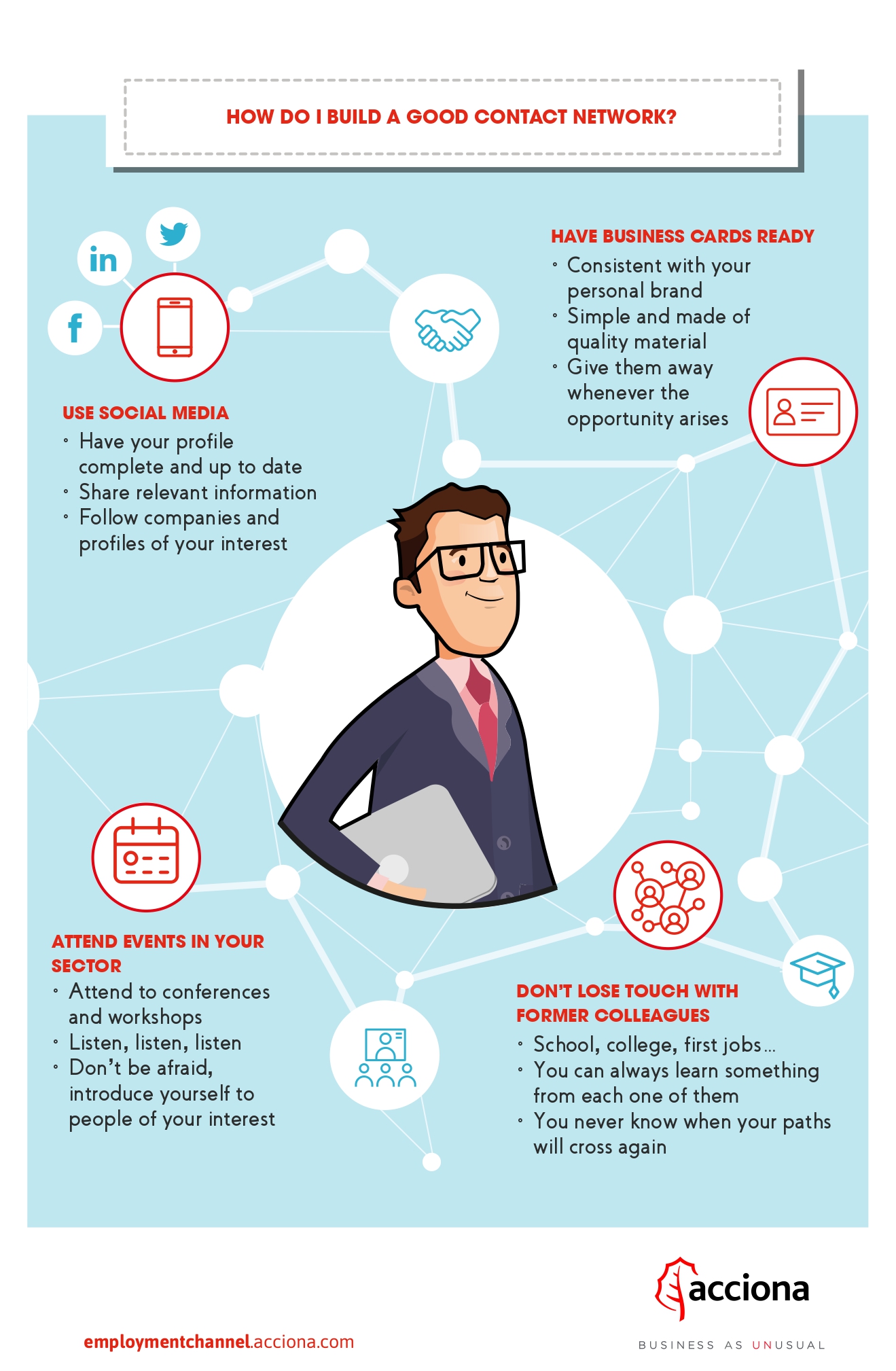In corporate world, it’s widely accepted that a strong contact network is key to achieve professional success. For those out of a job, its usually the first source for employment opportunities. For talent in work, on the other hand, it’s a good way to be aware of interesting proposals that may trigger a desire to make a mid or long-term shift in their professional career, even if they’re not active searching currently.
A “stealth” labour market
Besides, the importance of having a contact network to find a job is supported with data. In Spain, three out of job offers are never published or managed by specialized personnel selection agencies. According to a recent study about labour market by Lee Hecht Harrison for Adecco, organizations fill those vacant posts by themselves, usually by relying on recommendations of trustworthy individuals. This “stealth” labour market is particularly active when speaking of highly-skilled or highly-specialized positions; mainly in management and senior management levels, where up to 85% of offers are not visible.
Notwithstanding the above, the goal of networking should not be misinterpreted. It’s not about getting to know somebody with some power within a company so that he “recruits” us without the hassle of a selection process; it is about delving into a certain sector and being up to date with innovations that can be useful for professionals in their professional career development. In addition, networking must be understood as a great tool for reaching professional excellence in a certain position when active searching is not happening.

How to network successfully
Forging a solid contact network requires a strategy comprised of several stages, during which online and offline contexts where networking happens will have to be taken into account
1. Offline strategy
Attendance to professional events -seminars, fairs, presentations, conferences- related to your sector is essential to know other professionals susceptible to widen your contact network. In order to achieve success in your networking strategy, it’s advisable that the person concerned maximizes the visibility of both him and his organization, apart from following these expert advices:
- Business cards: in the era of technology and social media, they’re still very useful for self-introductions during those moments scheduled by the organizers for networking. It is convenient that these cards have an appropriate quality and design, consistent with the own personal brand previously built, which is also a key factor in this strategy aimed at creating and consolidating the network.
- Elevator pitch: having a brief presentation summarizing your profile and professional goals prepared beforehand is a good strategy to start a conversation with a potential contact who may be of great help in the future.
- Take care of your image: since it is also a part of your personal brand
- Business and work are not everything: during conversations with people attending events, it is advisable to talk about subjects other than those of professional nature.
- And after the event? : the ideal thing is to write emails to those people who seem more interesting for your network. In short, it’s all about appreciating shared moments and letting them know you’re at their disposal. Likewise, it’s advisable to search for those contacts on social media and make friend requests. From then on, you should do your best to keep in touch periodically, avoiding being invasive and always according to the contact’s response.
Online strategy
The significance of social media, mainly those of professional nature, is undeniable in a networking strategy. But they shouldn’t be used without rhyme or reason. As pointed out by Dorie Clark, a prestigious expert in marketing and author of the book Entrepreneurial You, “you must be specific about the profile of the people you want to add to your contact network”. She also adds that LinkedIn can be used to accelerate that process.
Be it LinkedIn or any other professional relationship-oriented social media, networking implies a proper use. These are the keys:
- Your social media profile must be as complete as possible: the more professional information about yourself your contacts have, the greater the possibility of reaching that goal sought after through networking.
- Put time and effort: developing multiple connection chains in social media enhances the possibilities of success.
- Share attractive content: instead of using social media to reach out to them, the smartest thing to do is to attract them with interesting material for that target audience.
- Use social media to be a model for your current organization.
Sources: Recotalent, Hays, RRHHDigital, Infoempleo, and Harvard Business Review
Image by: edubirdie.com